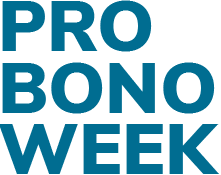Siobhan had been living in Northern Ireland with her partner for 23 years at the time of his death. However, because they had not been married, she was not eligible for the Widowed Parent’s Allowance to help her raise their four children. She struggled to support her family on her own, and took on three jobs.
The judicial review was brought to challenge the refusal to grant the allowance, leading to the Supreme Court sitting for the first time in Belfast.
Hebert Smith Freehills worked to assist Child Poverty Action Group (CPAG) in intervening to support her case, with barristers Helen Mountfield QC and Tom Royston also acting pro bono. CPAG’s submissions to the Supreme Court focused on how the interests and rights of children relate to a benefit which, although paid to the parent, is intended to support the welfare of the bereaved children.
Childhood Bereavement Network, part of the National Children’s Bureau, also intervened in support of the challenge, and were also represented pro bono by Irwin Mitchell and by barrister Stephen Broach.
The Court ruled that the denial of bereavement benefits to unmarried, cohabiting partners with children was incompatible with article 14 of the European Convention on Human Rights, and that it was discriminatory.
The pro bono interventions helped lead to this decision which may impact on a number of families across the UK.
You can read more at CPAG’s website, and read the judgment.
